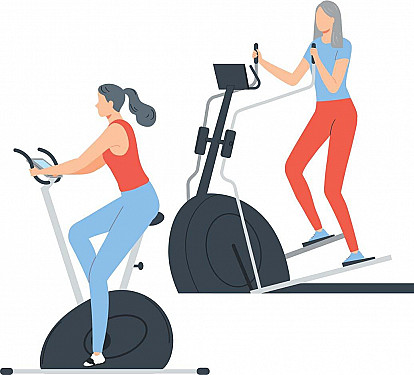Exercise may improve atrial fibrillation
Research we're watching
- Reviewed by Christopher P. Cannon, MD, Editor in Chief, Harvard Heart Letter; Editorial Advisory Board Member, Harvard Health Publishing

For people with atrial fibrillation (afib), a program of supervised and home-based exercise may reduce the severity and frequency of their symptoms, new research finds.
For the study, published April 2023 in JACC: Clinical Electrophysiology, researchers randomly assigned 120 people with occasional or ongoing symptomatic afib to an exercise group or a control group. The 60 people in the exercise group were offered one-on-one exercise sessions featuring high-intensity interval training. These sessions were held once weekly for three months and then every other week for an additional three months. Participants also got personalized recommendations for doing moderate to vigorous physical activity (such as brisk walking, swimming, and cycling) at home. The 60 people in the control group received two educational sessions about exercise benefits and were encouraged to do 150 minutes of moderate-intensity activity per week.
After six months, people in the exercise group had less severe afib symptoms than those in the control group. After 12 months, 24 people in the exercise group were free of afib, versus just 12 in the control group. The benefits probably reflected many factors, including exercise-induced improvements in heart and nervous system functioning, the authors said.
Image: © Halfpoint Images/Getty Images
About the Author

Julie Corliss, Executive Editor, Harvard Heart Letter
About the Reviewer

Christopher P. Cannon, MD, Editor in Chief, Harvard Heart Letter; Editorial Advisory Board Member, Harvard Health Publishing
Disclaimer:
As a service to our readers, Harvard Health Publishing provides access to our library of archived content. Please note the date of last review or update on all articles.
No content on this site, regardless of date, should ever be used as a substitute for direct medical advice from your doctor or other qualified clinician.
















